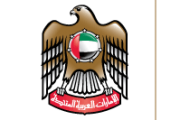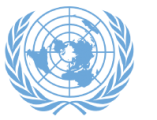The U.A.E. has stressed its commitment as a long-standing partner of Afghanistan, and of the recently-elected government.
Ambassador Lana Zaki Nusseibeh, Permanent Representative of the United Arab Emirates to the UN, yesterday moderated a panel at the United Nations on the "Political and Economic Transition in Afghanistan".
The panel convened following the release of "Afghanistan Reconnected: Regional Economic Security Beyond 2014", a report that is the culmination of four meetings organised by EastWest Institute, EWI, which took place in Istanbul, Islamabad, New Delhi and Berlin over the last two years, on cross-border economic challenges and opportunities.
These meetings, which were held with the support of the U.A.E., enabled leaders from Afghanistan, Pakistan, India, Turkmenistan, Iran, China, the European Union, the United States and other nations, to exchange ideas, identify opportunities and clarify obstacles to growth.
The panel was a part of a series of high-level consultations that the EWI has been convening as a part of the Abu Dhabi Process, an initiative designed to address regional economic security issues in Afghanistan post-2014 and jointly funded by the U.A.E. and Germany.
EWI Chief Operating Officer, James Creighton, made opening remarks and thanked the U.A.E. for its support. Deputy Permanent Representative of Germany to the UN, Heiko Thoms, and Permanent Representative of Afghanistan to the UN, Ambassador Zahir Tanin, also provided opening remarks. The panel participants included the former Indian Foreign Secretary, Ambassador Kinwal Sibal and the Permanent Representative of Pakistan to the UN, Ambassador Masood Khan.
Lana Nusseibeh began the discussion by outlining the positive commitment of the U.A.E. as a long-standing partner of Afghanistan, and of the recently-elected government. She also commented on the relevance of having this discussion at the UN as the international community gears itself towards the next steps in terms of the role of the UN and how it can be boosted.
During the discussion, Nusseibeh also raised the role of women in the transition, highlighting the positive impact that women can play in promoting a durable peace and also countering violent extremism as per UNSC resolution 1325 on Women, Peace, and Security.
As part of the panel discussion, delegates were asked to share their views on how regional participants can help to lessen the negative impact of the withdrawal of international troops and promote continued growth in Afghanistan. The panelists also shared their views on how the economy of Afghanistan could be improved, and commented on the necessity of increased investment in the national economy and the development of a solid economic framework. The discussion highlighted the important link between economic development and security, as well as the challenge posed by the illegal drug supply, its trafficking and the illicit economy that accompanies it.
The discussion also reiterated the need for progress on the political front, highlighting the political-economic-security nexus amid a backdrop where Afghanistan, and the whole region, can benefit from strategic cooperation rather than competition. Various participants underscored the importance of a national reconciliation process that brings together various stakeholders for peace talks in a multi-ethnic setting, a top priority for the new Afghani President, Ashraf Ghani.
The Abu Dhabi process is the Fourth Report of the EWI on a series of meetings facilitated by that organisation and hosted by the government of Abu Dhabi since 2010, and, more recently, Germany, to reinstate open communication and trust between Afghanistan and Pakistan.
An event report will be available on the EWI website this week.


